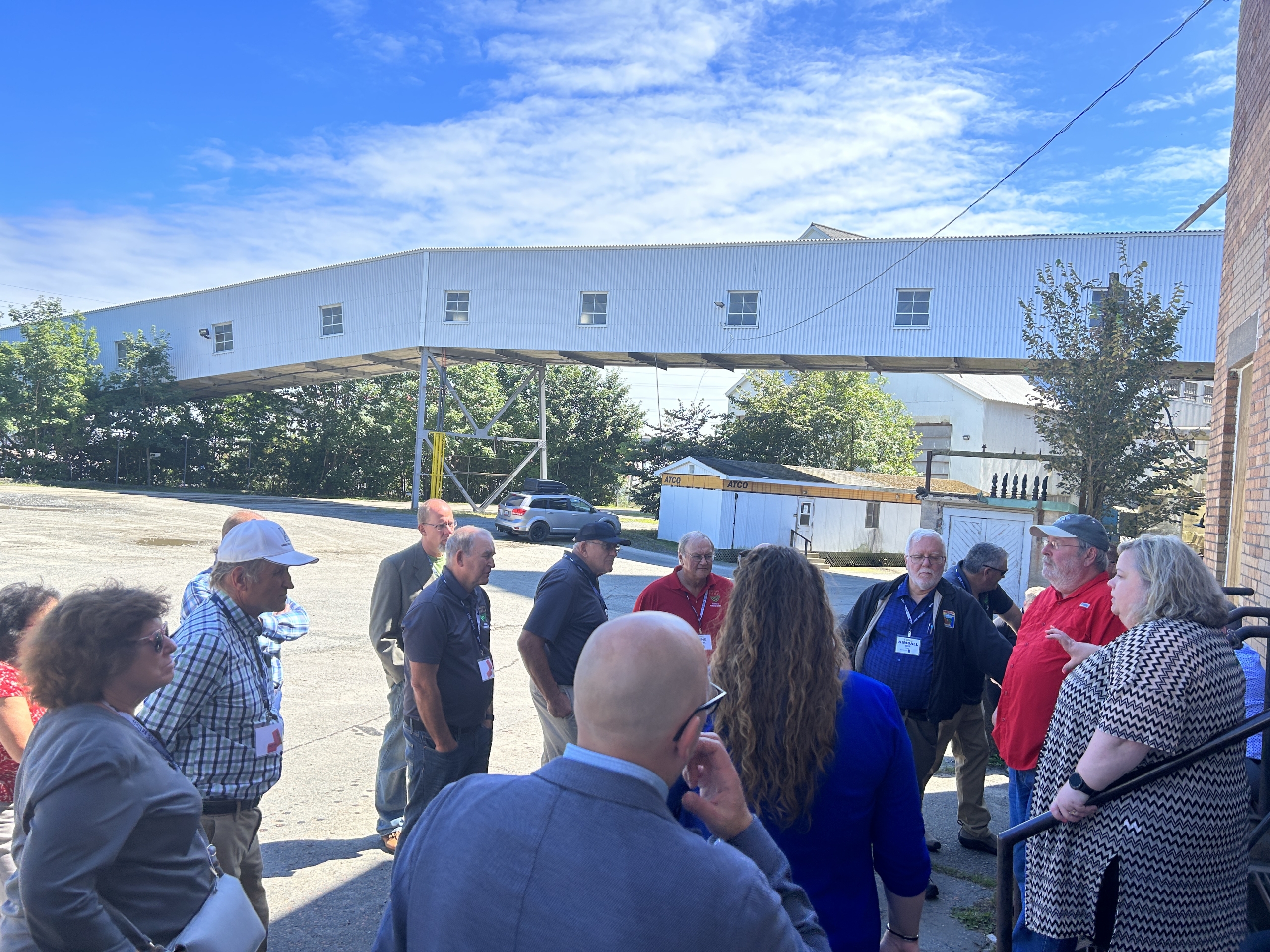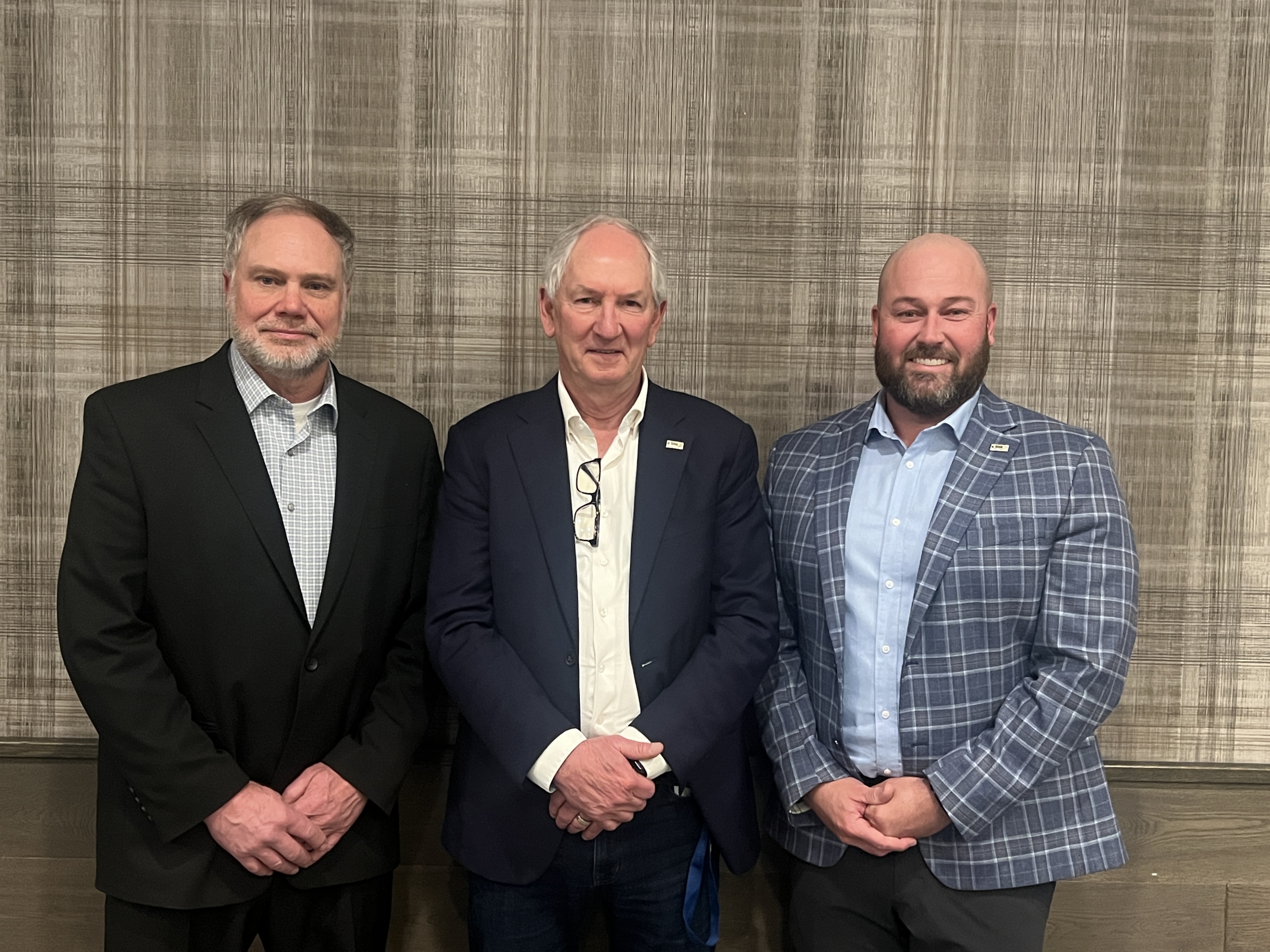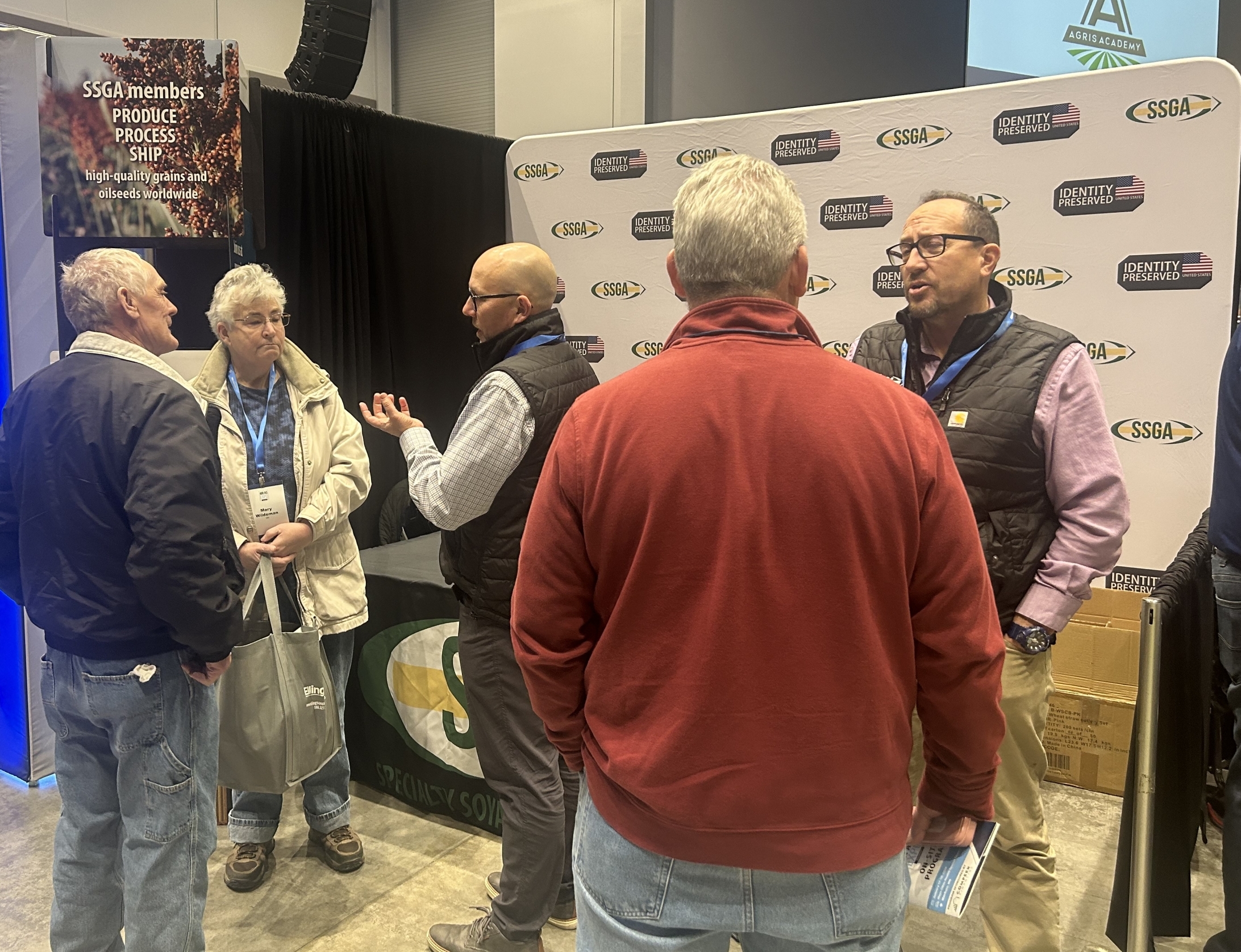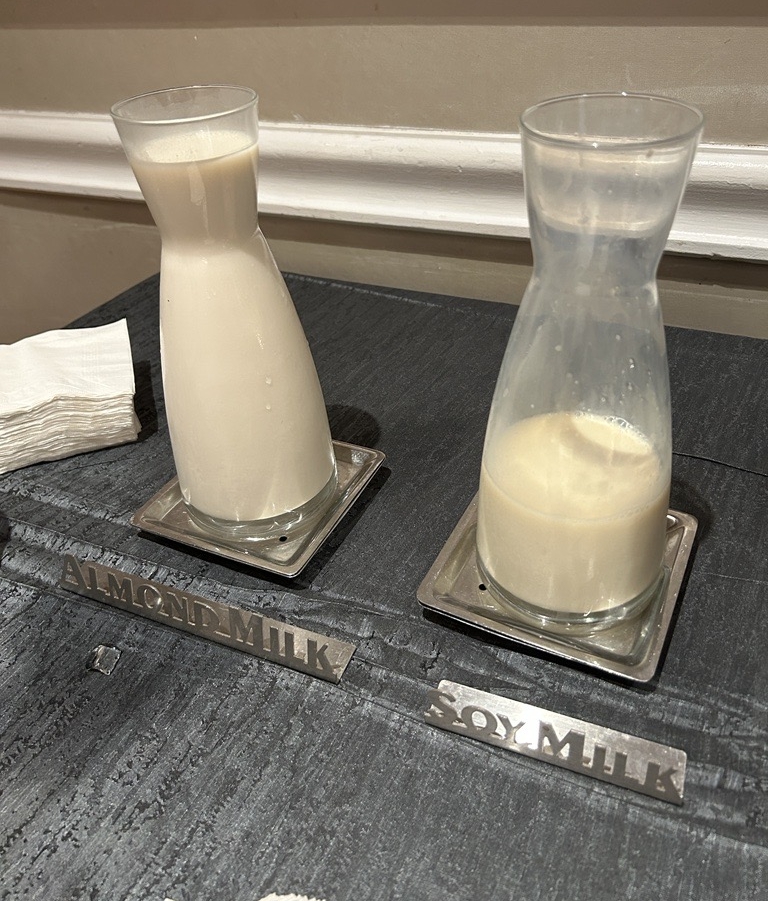The Specialty Soya and Grains Alliance (SSGA) is creating opportunities beyond the St. Lawrence Seaway.
In August, SSGA hosted a See for Yourself Port of Halifax tour, sponsored by the Minnesota Soybean Research and Promotion Council (MSR&PC) with the Wisconsin Soybean Marketing Board sponsoring Friday’s lunch. Connected to more than 150 countries, the Port of Halifax has the potential to export northern-grown soybeans to European countries through the Great Lakes St. Lawrence Seaway System, expanding the market and increasing farmers’ bottom lines.
“The See for Yourself program gave us a firsthand look at the shipping opportunities available to the Eastern United States and Canada,” said MSR&PC Vice Chair Gail Donkers. “Over the next 10-50 years, the Council is looking to expand markets out of Duluth and the Port of Halifax to provide more opportunities for Minnesota soybean farmers.”
Generating conversations was the focus while in Halifax. Those conversations were kickstarted at the PIER, a center for port innovation, planning and strategy, where attendees heard from key players in the shipping and transportation industry. As a member-supported company, the PIER is a living lab for maritime transportation and logistics, dedicated to solving persistent sector challenges.
 “We want to drive innovation for our supply chain and create efficiencies,” said PIER Director David Thomas. “These problems are larger than just one partner. We have to be able to work with our rail line, with our terminal operators, with our carriers.”
“We want to drive innovation for our supply chain and create efficiencies,” said PIER Director David Thomas. “These problems are larger than just one partner. We have to be able to work with our rail line, with our terminal operators, with our carriers.”
Along with Thomas, SSGA Executive Director Eric Wenberg, MSR&PC Director of Market Development Kim Nill, Minnesota Soybean Growers Association Executive Director Joe Smentek, Great Lakes St. Lawrence Seaway International Trade Officer Jazmine Jurkiewicz, Atlantic Grains Council Vice President Neil Campbell and Hapag-Lloyd Senior Manager of Port Operations Xavier Hamonic spoke with the group.
“SSGA is focused on the logistics and the business behind this trade,” Wenberg said. “As a learning and listening organization, we’re going to have conversations and figure out what to do next. Shipping and transportation is the backbone of what we do.”
In marketing year 2021/2022, the United States exported more than 2 billion bushels of soybeans, yet only about two percent left the country via the St. Lawrence Seaway. Why? The better question is ‘Why not?’
“Why not Duluth-Superior?” Smentek asked. “We’ve had really great conversations with feed mills in Morocco. They want soy from the upper Midwest because they know the quality of the product that we have. There is a lot of opportunity for bulk shipments, especially port to port.”
Tackling trade barriers is hard work. If it was easy, everyone would be doing it.
“There are still barriers,” Smentek said. “The biggest one right now is economics. It is cheaper out of Houston and Norfolk. Highway H20 is working on a study to say, ‘Here is the cost that goes into the St. Lawrence Seaway and here’s the cost that goes into Houston.’”
In addition, exporting from Houston is cheaper because the state of Texas pays a lot of the costs associated with shipping and transportation.
“The question is, what fees can we tap into?” Smentek said. “If there is a pilot fee on a dock, can the state of Minnesota and Wisconsin pay for the pilot to come into Duluth-Superior? Can we start doing those things? But those questions haven’t even been asked yet. So that’s really what this effort is about.”
Luckily, neither SSGA nor soybean farmers shy away from asking questions that no one else is asking.
“It’s nice to have farmers, the experts, in the room to ask those questions,” Smentek said.
While there is still work to be done before the Port of Halifax becomes a hub for Upper Midwest-grown soybeans, SSGA and Minnesota and Wisconsin soybean growers are doing what they can to make the stars align.
“It’s a good exercise for Minnesota and Wisconsin checkoffs to make sure that there is a plan,” Smentek said. “And if you do have people that want U.S. soy like they do in Morocco, that they have a cheap, easy way to get it there and to get it there from Minnesota and Wisconsin.”







